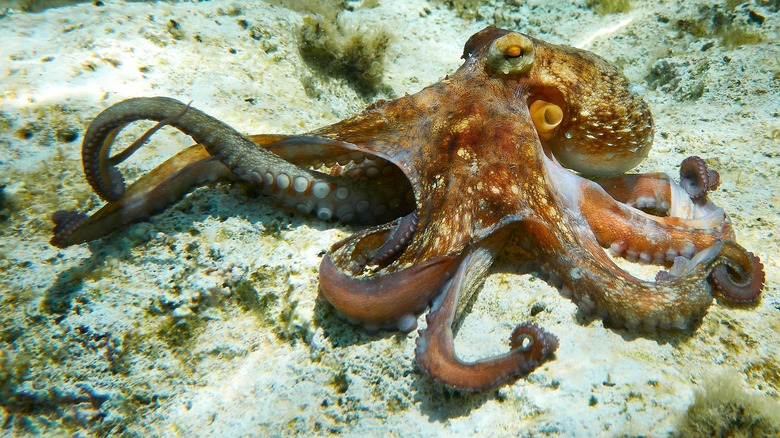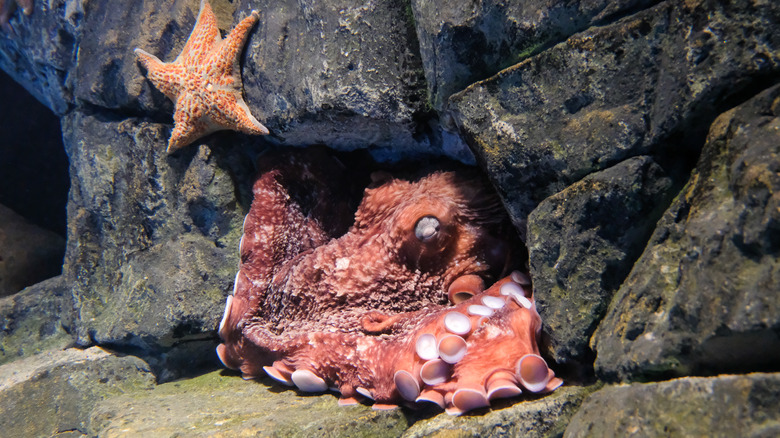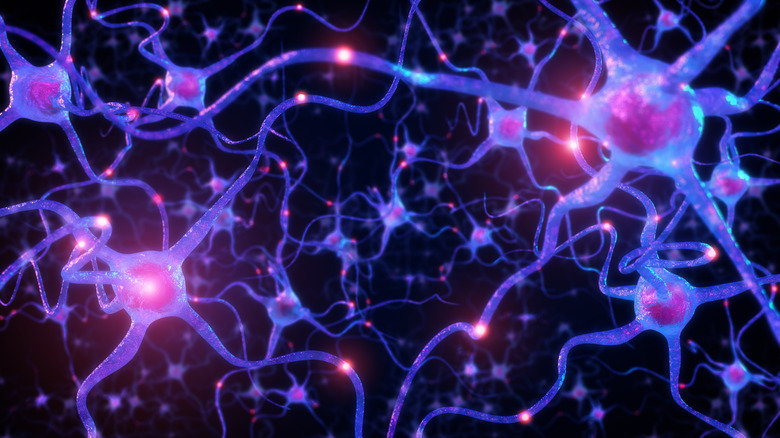Octopuses Might Change Colors For More Reasons Than Just Camouflage
Octopuses, like other creatures that roam the earth, have the ability to alter their color, creating camouflage when hunting for prey, or the flipside, running away from predators. This in itself is not unique to these creatures, but the fact that they also perform this trick when they sleep is a little odd.
So why do they do this? No one knows for sure. Scientists can only give their best guesses with research to back them up, but some suspect that this may be something that octopuses do when they are dreaming.
When humans dream, we often tend to have weird combinations of all sorts of imagery and experience we've felt in real life, and it's possible that octopuses may be doing the same thing. Maybe an octopus is dreaming about hunting, or having nightmares about escaping its predator, which would explain why they are changing color. According to CNN, the case may be that octopuses go through the same sleep cycle we do, even having REM sleep. This leaves scientists pondering why sleep and sleep cycles have evolved in so many seemingly separate species, and what might be the purpose of dreams for creatures like octopuses — if, in fact, they are dreaming.
Dreams under the sea
In 2021, Brazilian scientists were studying octopus sleeping patterns and noticed how an octopus wrapped its eight arms around itself, before turning its skin to a grey color, and then fall asleep. Later on, the octopus would begin to twitch, and its skin changed from grey to orange, and even to red. These scientists believe this is the point where an octopus's REM (rapid eye movement) sleep cycle begins. The researchers suggest that an octopus's REM sleep is probably very similar to ours, according to CNN.
The purpose of dreaming during sleep has been a debate among scientists for many years. However, some believe that humans dream for the purpose of processing memories, or coping with some psychological distress we may be feeling, according to the Cleveland Clinic. It's been shown that people tend to dream more when they are feeling anxious or stressed, which supports this theory. Dreams can be interpreted in a multitude of ways, and they tend to be subjective for the individual, but for a long time, scientists believed only mammals and birds dreamed, according to CNN.
Difference in neurochemistry
Recently, it's been discovered that some non-mammal creatures like reptiles also dream, but what's unique about octopus dreams is that they do this in a similar fashion to mammals despite their different brain structure. Octopuses have roughly 500 million neurons that compose their neural system, which is pretty large compared to most creatures its size, according to Scientific American. In comparison, humans have 100 billion neurons. But what does make octopuses unique is that most of their neurons are in their arms, and not in a central "brain" as humans have (via Scientific American).
They have been shown to be fairly intelligent, having the ability to navigate through certain mazes, open jars of food, rob food from other tanks at night, and even recognize different individuals (via Scientific American). To top off how different humans and octopuses really are, it is believed that the last common ancestor between humans and octopuses lived 750 million years ago, according to Edinburgh University. With all these differences, scientists will have a lot more questions as to why creatures across the entire biosphere "dream," and what it means for all earthlings on this strange, but beautiful, rock we call home.


